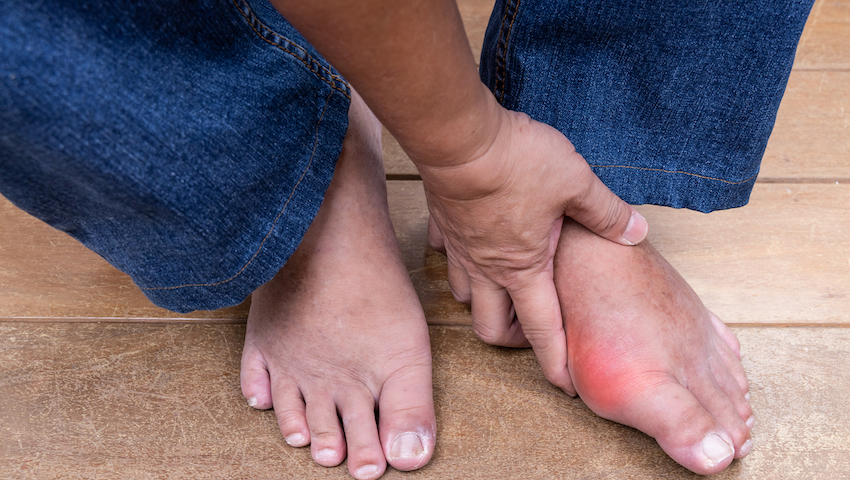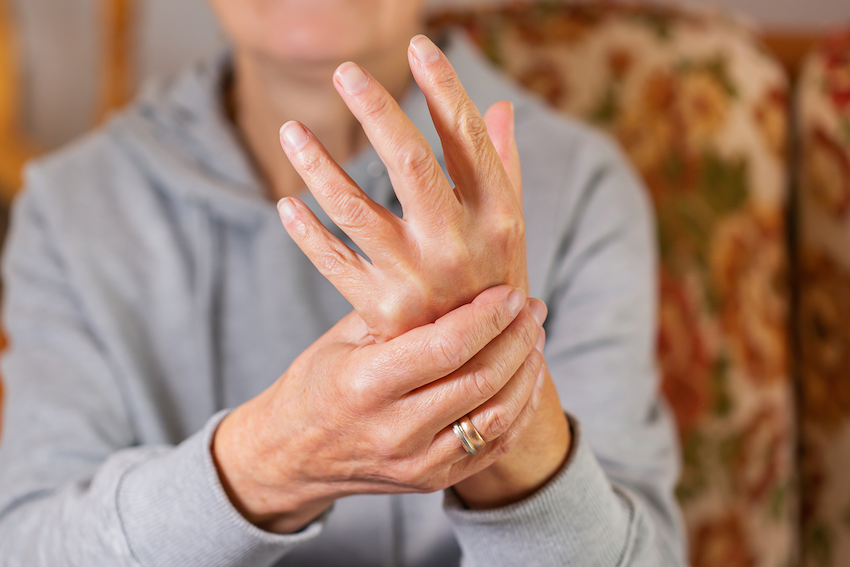
Vertiflex: An LSS Treatment that Really Works
October 17, 2022
What Is Vestibular Rehab? (and How to Know When You Need It)
December 19, 2022What Are the Most Effective Treatment Options for Gout?

Gout is a painful inflammatory arthritis condition that often presents in the big toe as redness, swelling, heat, and tenderness. It can also affect other joints like the ankle, knee, elbow, wrist, and fingers. Gout is caused by high levels of uric acid in the body or what’s known as hyperuricemia. Uric acid is produced naturally in the body, but it can be difficult for the body to excrete it (get rid of) depending on your diet or if you have certain health conditions. A rheumatologist can diagnose your condition and recommend treatment options for gout.
What causes gout and who gets it?
Men are typically more susceptible to gout with African American men being even more vulnerable to the condition. Menopausal women are also more prone to gout. People with obesity are also at greater risk of gout due to the nature of the disease, which is the build-up of uric acid in the body’s joints, fluids, and tissues.
You may also be at risk for gout if you have:
- Diabetes
- Congestive heart failure
- High blood pressure
- Metabolic syndrome
- Poor kidney function
There are also dietary issues that contribute to gout, including:
- Drinking alcohol
- Eating red meat, organ meats, and certain types of seafood
- Drinking beverages high in fructose, such as cola
Diagnosis and treatment options for gout
Gout symptoms often come and go so it may be challenging to diagnose or symptoms may seem similar to other health conditions. If you have painful joint symptoms, it’s best to see a rheumatologist who specializes in treating gout. The doctor will perform and recommend certain tests to help diagnose gout, such as:
- Joint fluid test – This involves using a needle to take a fluid sample from the affected joint. The fluid is then examined under a microscope for the presence of urate crystals.
- Blood test – A blood test can measure uric acid levels in your blood but may not be the ultimate indicator of gout. Some people have high levels of uric acid in their bodies but don’t necessarily have gout, and vice versa.
- X-ray – An X-ray of your affected joint can help determine if there are any other problems.
- Ultrasound – Sound waves can also detect urate crystals in your joints or in tophi, which are swollen, misshapen lumps of uric acid that may form around the affected joint.
- Dual-energy computerized tomography (DECT) – This allows for images of joints to be taken at different angles to get better visuals of urate crystals.
If you’ve been diagnosed with gout, your rheumatologist will come up with a treatment plan designed to provide immediate relief from pain and other symptoms, prevent future flare-ups, and prevent tophi and kidney stones from forming due to uric acid buildup.
Prevention—followed by medication—is the most effective treatment option for gout. Your doctor will explore preventive measures with you and will recommend pain-relieving options.
Nonsteroidal anti-inflammatory drugs (NSAIDs)
NSAIDs help reduce inflammation in the joint and therefore provide relief from pain. Some NSAIDs are over-the-counter, such as regular ibuprofen but you may be prescribed a higher dose or a different type by your doctor. Patients with kidney disease may not be able to take an NSAID because it’s harder for the kidneys to process the drug, in which case your rheumatologist will recommend a more appropriate medication for you.
Urate-lowering medications
Medications that lower urate can help prevent uric acid from building up and creating crystals in the body. Urate-lowering medications can also prevent pain and swelling due to gout.
Corticosteroid injections
Joint injections may also be recommended to reduce inflammation and pain caused by gout. They’re generally recommended as a gout treatment option for people who can’t tolerate medications like NSAIDs and urate-lowering medications.

Self-management treatment options for gout
Your rheumatologist will also discuss your current diet and make recommendations to help reduce triggering foods and beverages. Together, you and your doctor may also discuss a plan for physical activity that’s realistic for you, to help stimulate circulation and maintain a healthy weight while also reducing stress on your joints.
You may also have a follow-up care program to follow so it’s important to keep up with your regular doctor appointments. Medication management and monitoring are important aspects of gout treatment.
Gout is considered a chronic disease that needs ongoing care. If you need additional support, be sure to reach out for chronic care services.
Prefer to talk to a rheumatologist about gout concerns?
Give us a call at (941) 375-3006 or fill out the form.
Contact Us
contact@restoremedicalpartners.com
(941) 375-3006
(941) 218-4825
333 S Tamiami Trl, Suite 101
Venice, FL 34285



